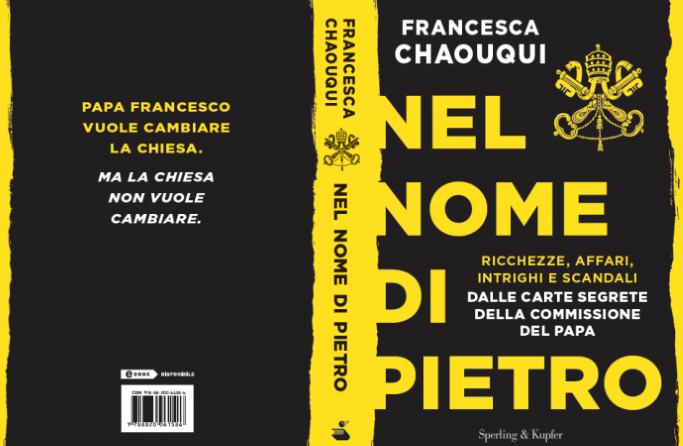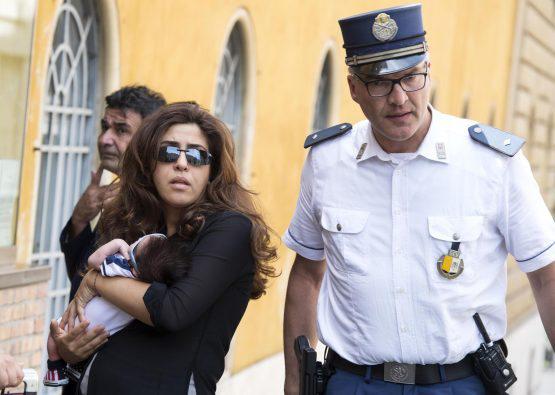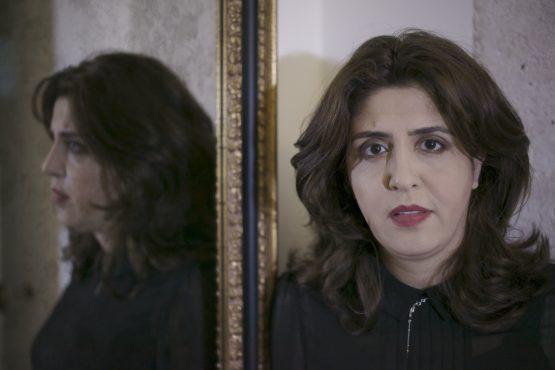|
New book more of whimper than bang on Vatican finances
By John L. Allen Jr.
In her new book "Nel Nome di Pietro" ("In the Name of Peter"), Vatileaks 2.0 defendant Francesca Chaouqui provides few new revelations of Vatican financial scandals, instead trying to reframe her own image from femme fatale to idealistic reformer who ran afoul of powerful vested interests.After one defendant in last year’s Vatileaks 2.0 trial published a book in January, Rome has been waiting for the other shoe to drop, this time a volume by the woman at the heart of it all: Francesca Immacolata Chaouqui, an Italian PR consultant whose own new book is titled Nel Nome di Pietro (“In the name of Peter”). The book went on sale today, and if the interest one brings is whether it offers new revelations about financial corruption in the Vatican, then it’s more of a whimper than a bang. To recap, Chaouqui, a Spanish cleric named Monsignor Lucio Vallejo Balda and an Italian layman named Nicola Maio served on a commission created by Pope Francis in 2013 to study reform of Vatican finances. Later, all three would be charged along with two Italian journalists with leaking and publishing confidential documents from that commission. Vatican prosecutors took them to trial, with the two journalists eventually being acquitted for lack of jurisdiction (they’re Italian citizens and not Vatican employees), Maio acquitted for “not having committed the crime,” Chaouqui given a suspended sentence, and Balda sentenced to 18 months (which was cut in half by Pope Francis in December.) For the record, Chaouqui has always insisted on her innocence. To add yet another splash of melodrama, Chaouqui was pregnant during the trial and gave birth to her first son, whom she named “Peter” in honor of the pope. To be sure, Chaouqui’s book covers many of the areas where the Vatican’s money management over the years has been a perpetual source of scandal and heartache - the high costs of sainthood procedures, misuse of funds at Vatican-affiliated hospitals, the sumptuousness of cardinals’ apartments, the Vatican’s dubious gas and tobacco sales, management of its real estate, an under-funded pension system, a lack of competitive bidding in awarding contracts, and more. However, all of that has been painfully well known, even before COSEA was created, and is basically why Francis felt the need to launch a reform in the first place. Reading more like a diary than an exposé, and one where it’s sometimes hard to separate fact from fiction, the book’s aim seems to be to recast Chaouqui’s image, away from the femme fatale to the misunderstood idealist who got swept up in a series of internal struggles and power games not of her own making. She reports being dumbfounded at the scale of financial corruption she discovered, describing the Vatican as a place where “everything is possible, everything is permitted, and no one is innocent.” In Chaouqui’s eyes, the early promise of reform has largely been squandered, and naturally that raises the question of who’s to blame. Her major candidate for the bad guy is Australian Cardinal George Pell, Pope Francis’s choice for his new Secretary of the Economy, a figure who started strong but who’s lost a series of internal battles since. (Villifying Pell was also a key element of the book Lussuria by the other Vatileaks 2.0 defendant to publish so far, journalist Emiliano Fittipaldi. In both cases, the presentation is based on well-documented charges Pell has already responded to multiple times, and, in both cases, his side of the story isn’t told.) As Chaouqui tells it, she had doubts about Pell from the beginning, and once she discovered his record on clerical sexual abuse scandals in Australia, she became convinced that he was a problem. She says he brought the same modus operandi of seeking to protect and expand church assets at the expense of justice to the Vatican, which doomed the sort of reform Pope Francis desired. In her eyes, Pell and his allies, including lay members of the new Council for the Economy, were never primarily interested in the hands-on task of cleaning up the mess. Instead they wanted to build new financial structures to turn the Vatican into an investment and asset management colossus, with close ties to multi-nationals and financial consulting firms. Once they broke with Pell, she says, she and Balda had powerful Vatican enemies, and in her eyes her indictment and eventual conviction in the leaks trial were the natural end-game of a long-running effort to marginalize and discredit her. Of Balda, Chaouqui describes a cleric who was always a mix of zeal for reform and personal self-interest, and who gradually cracked under the strain of the circumstances in which he found himself. Some of the exchanges she recounts with Balda in the book will be of prurient interest, including alleged disclosures about his sexual life. How seriously should we take all this? Well, there’s some basis for caution. For instance, she claims to have become scandalized by Pell’s background with the abuse scandals in January 2014, and by the summer of 2014 to have clearly perceived him as an enemy. Yet I interviewed Chaouqui for the Boston Globe in June 2014, and here’s what she said then: “I think [we’re at] an historical turning point. In part that’s because of Pell, whom I support completely.” Of course, people don’t always tell reporters what they really think, but that doesn’t sound like the sort of caution one, who by then says she saw Pell as a cancer, might be expected to use. Without a doubt, Chaouqui’s book rightly laments the often-dysfunctional and sometimes corrupt world of Vatican finance, and the jury is still out on whether Francis will succeed in injecting real transparency and accountability. Until we have significant prosecutions of financial crimes, a convincing annual financial statement, and an audit with teeth, reminders of the work left to be done are always useful. However, the book adds relatively few new pieces to the picture - and as for Chaouqui’s attempt at rehabilitation, well, the jury’s probably still out on that one too.
|
.
Any original material on these pages is copyright © BishopAccountability.org 2004. Reproduce freely with attribution.


